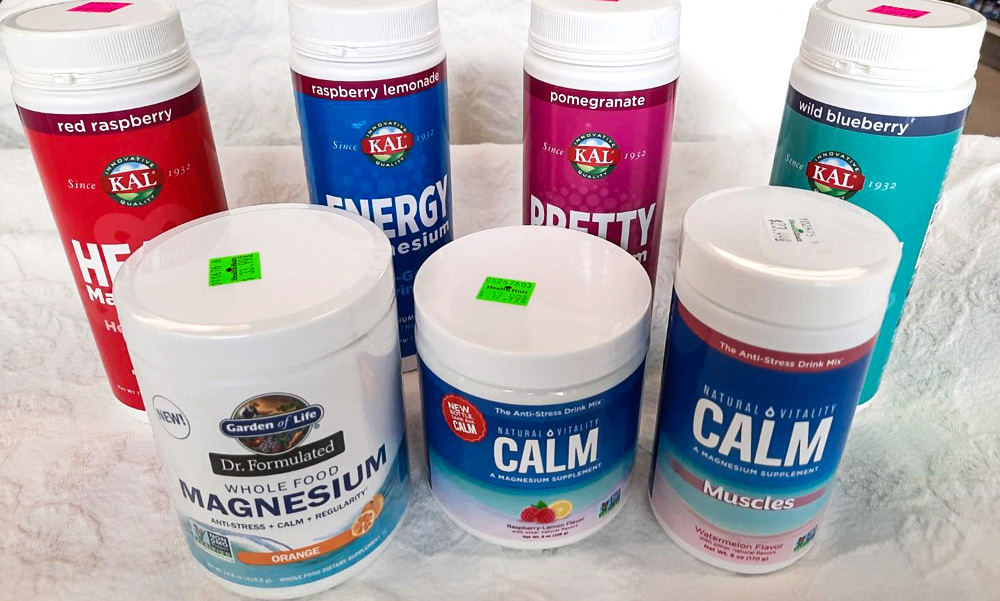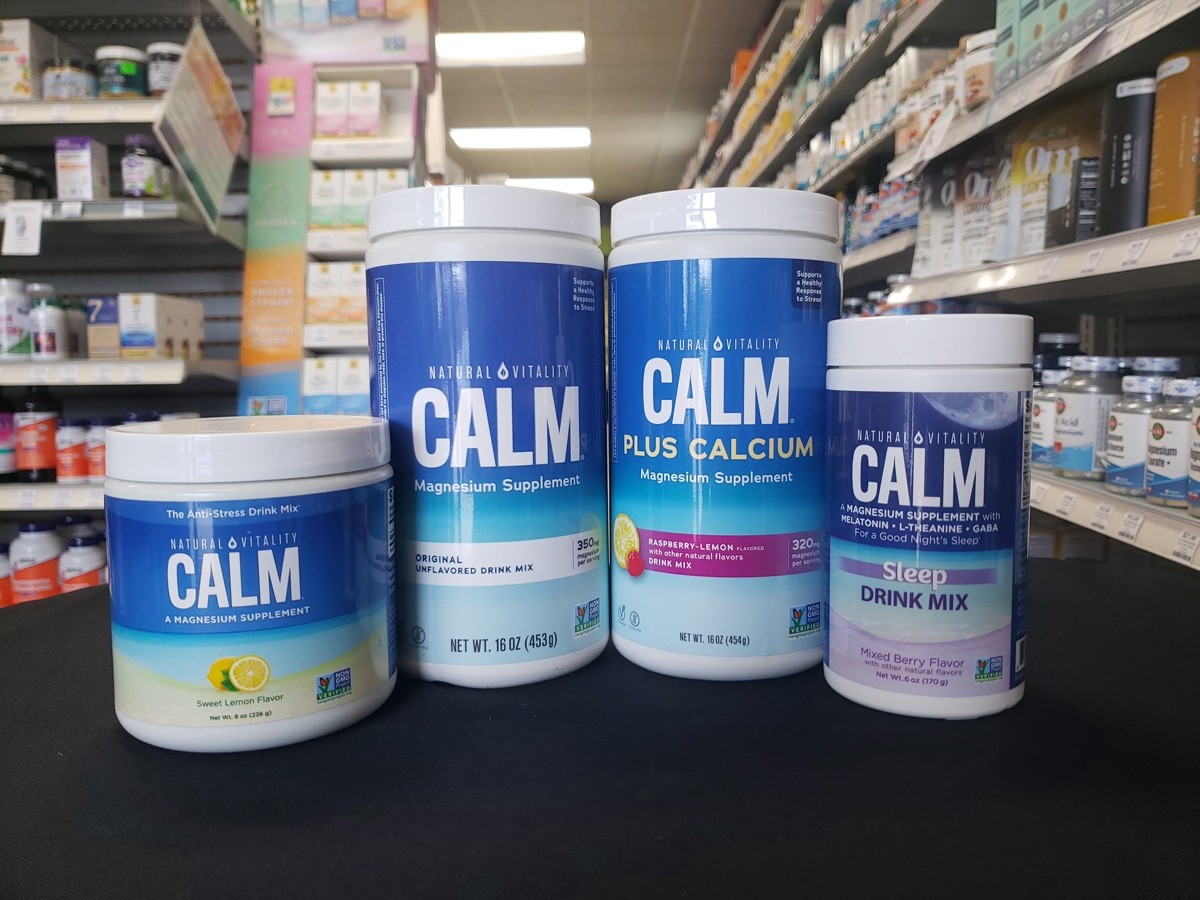Magnesium is an essential mineral for human health – in fact it is arguably one of the most important. It is the second most plentiful mineral found in human cells; and the fourth most common mineral found throughout the body. (4) Magnesium deficiency can affect everyday life and well-being.
Being deficient in magnesium disrupts ones balance as it affects every function of the body. Lack of magnesium in your body can contribute to general feelings of ill health. Mild magnesium deficiency has been found to be common in those with symptoms such as muscle spasms, cramps, hyperventilation, abnormal physical weakness, lack of energy, nervousness, irritability, sleep disorders, and hyper-arousal. (1)(2) For another example, in one study on 500 individuals with depression it was discovered that most of them had a magnesium deficiency. (2) Read more below about health issues that can be alleviated by getting adequate levels of magnesium.
The US national survey, NHANES 2013-2016, stated that 48% of the US consume less than the required amount of magnesium to prevent deficiency. Why are so many people deficient? One culprit is stress. During a stressed state, adrenaline levels go up and magnesium is depleted from the body because it is released from blood cells into the blood plasma before exiting the body through urine.(2) Another reason is diet. One should make sure one is eating magnesium rich foods or supplementing with magnesium. Magnesium levels could also be affected by poor absorption in digestion. (4) The good news is that magnesium can be found in many foods and highly absorbable supplements.
- cacao
- coconut milk
- avocado
- nuts like almonds, brazil nuts, cashews
- seeds like pumpkin, hemp, chia
- leafy greens like spinach, swisschard and beet greens
- spinach
- herbs like chives, cilantro, dill, basil, sage
- lima beans, black beans
- oysters, mackerel

What does Magnesium do?
- It is necessary for the activation of over 300 enzymes
- Helps digestion and absorption
- Helps transport energy to the body
- Activates ATP (adenosine triphosphate) which is a vital energy storage molecule in the body
- Vital for energy metabolism and muscle contraction
- Helps utilize proteins, carbohydrates and fats
- Helps to maintain muscle and nerve function
- Helps transport nerve signals
- Assists muscles to relax
- Promotes normal heart rhythm rate and blood pressure (2)
- Low magnesium levels make vitamin D ineffective (3)
- It is an alkaline mineral and can increase alkalinity in the body. (5)
After reviewing the list of things magnesium does in your body, consider the detrimental effects of not having enough magnesium in the body to fulfill all these roles. Because it is used by the body in so many ways, magnesium deficiency could also manifest in many ways... and this is just a small list of what magnesium does! What are the benefits of making sure Magnesium levels in the body are adequate?
Here are just some of the researched benefits of having adequate levels of magnesium or supplementing:
- Stronger bones and teeth and decreased bone breakdown
- Improved blood sugar control
- Decrease frequency and intensity of migraines (4)
- Helps prevent and manage hypertension, cardiovascular disease, diabetes, joint pains, and asthma
- Can reduce symptoms of chest pain, anxiety, palpitation, low energy, faintness and breathing difficulties
- Magnesium calms the brain helps reduce depression, irritability, anxiety, and tension.
- It relieves stress – replenishing lost magnesium
- May reduce lower back pain
- May help prevent cavities
- Can prevent calcification (2)
- Can help balance hormones – read more in this blog post.
You may have seen that magnesium and Calcium are often combined in supplements. While calcium is an essential mineral, it is crucial to make sure magnesium levels are adequate when taking calcium. Once calcium is utilized in the body, magnesium comes into play to stop excess calcium from causing damage to cells like calcification and hyper-excitability. (2) Calcification is the build-up of calcium in bodily tissues that can form hardened deposits in soft tissues, arteries, and other parts of the body. Magnesium is correlated with lesser amounts of calcification of coronary arteries. (4)
Magnesium deficiency, even when mild, makes one more likely to experience physiological damage caused by stress. (1) Magnesium ions protect the body from neurotoxicity resulting from stressors such as environmental noise and physical trauma. (1) Basically, when you are deficient in magnesium it affects the ability to cope with stressors. However, taking magnesium supplements can reverse sensitivity to stress. (1)

If you have been battling with some of the symptoms mentioned in this blog, you may want to investigate magnesium as a way to improve your quality of life. Try in incorporate more of the foods high in magnesium listed above into your diet. A smoothie bowl is a great way to get a lot of magnesium in a meal. Make a smoothie that includes coconut milk, avocado, and cacao. Then top it off with magnesium rich nuts and seeds.
- Natural Vitality’s CALM – a very popular magnesium supplement in a powdered form, flavored or unflavored, that can be mixed with water
- Trace Minerals Research Ionic Magneisum, which is highly absorbable


- Galland L. Magnesium, stress and neuropsychiatric disorders. Magnes Trace Elem. 1991-1992;10(2-4):287-301. Retrieved from URL.
- Faryadi, Q. (2012). The Magnificent Effect of Magnesium to Human Health: A Critical Review. International Journal of Applied Science and Technology. 2(3):118-126. Retrieved from URL.
- American Osteopathic Association. (2018). Low magnesium levels make vitamin D ineffective. Retrieved from URL.
- Brown, S. (2021). Magnesium: The Miracle Mineral. Alkaline for Life. https://alkalineforlife.com/blogs/news/magnesium-the-amazing-mineral
- Miller, David. (2021). Alkaline diet. Grow Youthful. https://growyouthful.com/remedy/diet-alkaline.php#magnesium
- Martin, K. (2019, November 10). Magnesium for Period Pain. Natural Health Maven. https://naturalhealthmaven.com/magnesium-period-pain-cramps/
